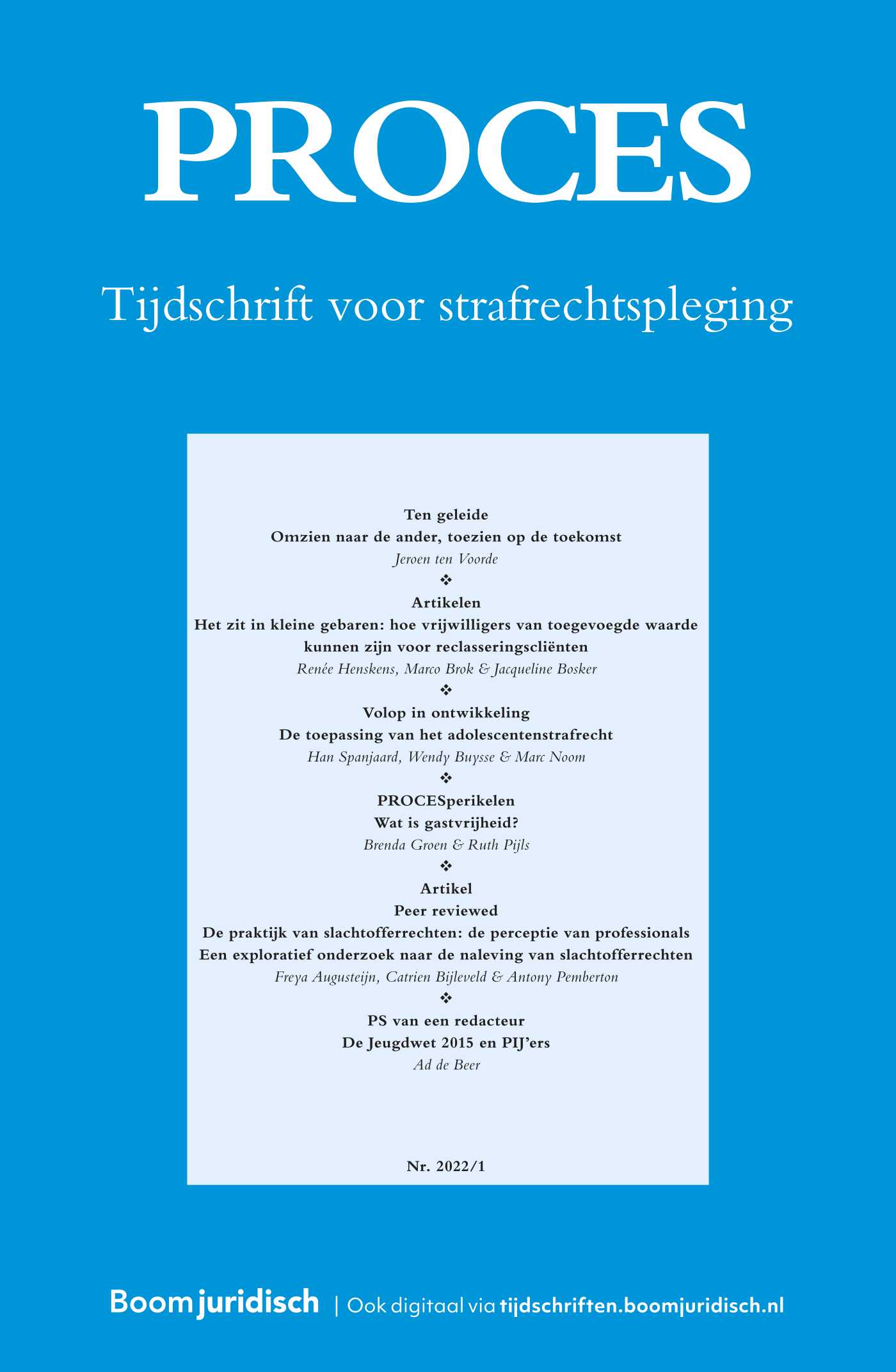|
According to Dutch law, investigating officers have to comply with a so-called ban on passage of people, in cases of concrete ‘knowledge’ about human smuggling, making intervention obligatory (in order to protect smuggled migrants). Nevertheless, a formal exception procedure is possible if non-intervention would be in the interest of the investigation. This exception procedure, however, is not used in practice. Based on interviews with investigating officers, this paper concludes that protection of smuggled migrants is a very important aim as such, that ‘knowledge’ is a complex concept as it is not always very concrete, that making this ‘knowledge’ more concrete depends on actual investigative efforts, and that – if this information is concrete – there are various ways in which interventions can take place that do not jeopardize the aims of the investigation. |


PROCES
Meer op het gebied van Criminologie en veiligheid
Over dit tijdschriftMeld u zich hier aan voor de attendering op dit tijdschrift zodat u direct een mail ontvangt als er een nieuw digitaal nummer is verschenen en u de artikelen online kunt lezen.
| Ten geleide |
Wie moet op de blaren zitten? |
| Auteurs | Mr. dr. Sigrid van Wingerden |
| Auteursinformatie |
| Artikel |
|
| Trefwoorden | Doorlaatverbod, Mensensmokkel, Opsporing, Opsporingsonderzoeken |
| Auteurs | Lotte Hoes MSc en Prof. dr. Edward Kleemans |
| SamenvattingAuteursinformatie |
| Artikel |
Leren over radicalisering |
| Trefwoorden | Radicalisering, Cursus, Praktijk, Professionals |
| Auteurs | Karin Frissen en Janine Janssen |
| SamenvattingAuteursinformatie |
|
In this contribution is explained what the researchers have learned from developing a course for professionals regarding recognizing signs of radicalization among youngsters. Giving this training has given us insight into the knowledge and expertise that professionals possess. The participants in our training were all enthusiastic and competent professionals. The will to support these young people and their families is great. But we have also encountered some bottlenecks: there is not sufficient time to maintain contacts with informal networks and next to that we have noticed that professionals are often insecure, meaning that they don’t know how to handle a case and/or who to contact for further advice or another form of help in dealing with these cases. As a consequence professionals might feel isolated and left behind within the institutions that they are working in. For the future we would like to see that this problem of what in The Netherlands is referred to as ‘professional loneliness’ is addressed. |
| PROCESperikelen |
De politiedrone-app, innovatieve ondersteuning in de handhaving |
| Auteurs | Wouter van der Kraan |
| Auteursinformatie |
| Artikel |
Reclassering in een veranderende omgevingEnkele opmerkingen naar aanleiding van een advies van de Raad voor Strafrechtstoepassing en Jeugdbescherming van 30 mei 2017 |
| Trefwoorden | Probation, RSJ, Criminal justice, Recidivism reduction |
| Auteurs | Dr. Jaap A. van Vliet |
| SamenvattingAuteursinformatie |
|
The article describes some highlights of the advice and concludes that the document mainly describes the current situation of the probationservice. The advice may possibly contribute to the upcoming discussion regarding the organization of the probation service. |
| PS van een redacteur |
Intensiveren van de samenwerking met het sociale domein |
| Auteurs | Dr. Jacqueline Bosker |
| Auteursinformatie |

